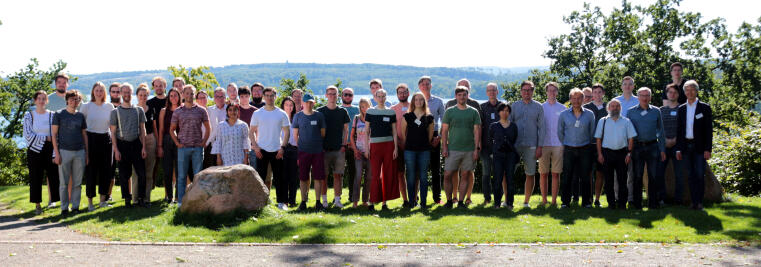
Strong and Weak Interactions - from Hadrons to Dark Matter

The Research Training Group (Graduiertenkolleg) 2149 "Strong and Weak Interactions - from Hadrons to Dark Matter" funded by the Deutsche Forschungsgemeinschaft focuses on the close collaboration of theoretical and experimental nuclear, particle and astroparticle physicists further supported by a mathematician and a computer scientist. This explicit cooperation is of essence for the PhD topics of our Research Training Group.
Scientifically this Research Training Group addresses questions at the forefront of our present knowledge of particle physics. In strong interactions we investigate questions of high complexity, such as the parton distributions in nuclear matter, the transition of the hot quark-gluon plasma into hadrons, or features of meson decays and spectroscopy. In weak interactions we pursue questions, which are by definition more speculative and which go beyond the Standard Model of particle physics, particularly with regard to the nature of dark matter. We will confront theoretical predictions with direct searches for cold dark matter particles or for heavy neutrinos as well as with new particle searches at the LHC.
The pillars of our qualification programme are individual supervision and mentoring by one senior experimentalist and one senior theorist, topical lectures in physics and related fields (e.g. advanced computation), peer-to-peer training through active participation in two research groups, dedicated training in soft skills, and the promotion of research experience in the international community. We envisage early career steps through a transfer of responsibilities and international visibility with stays at external partner institutions. An important goal of this Research Training Group is to train a new generation of scientists, who are not only successful specialists in their fields, but who have a broader training both in theoretical and experimental nuclear, particle and astroparticle physics.

